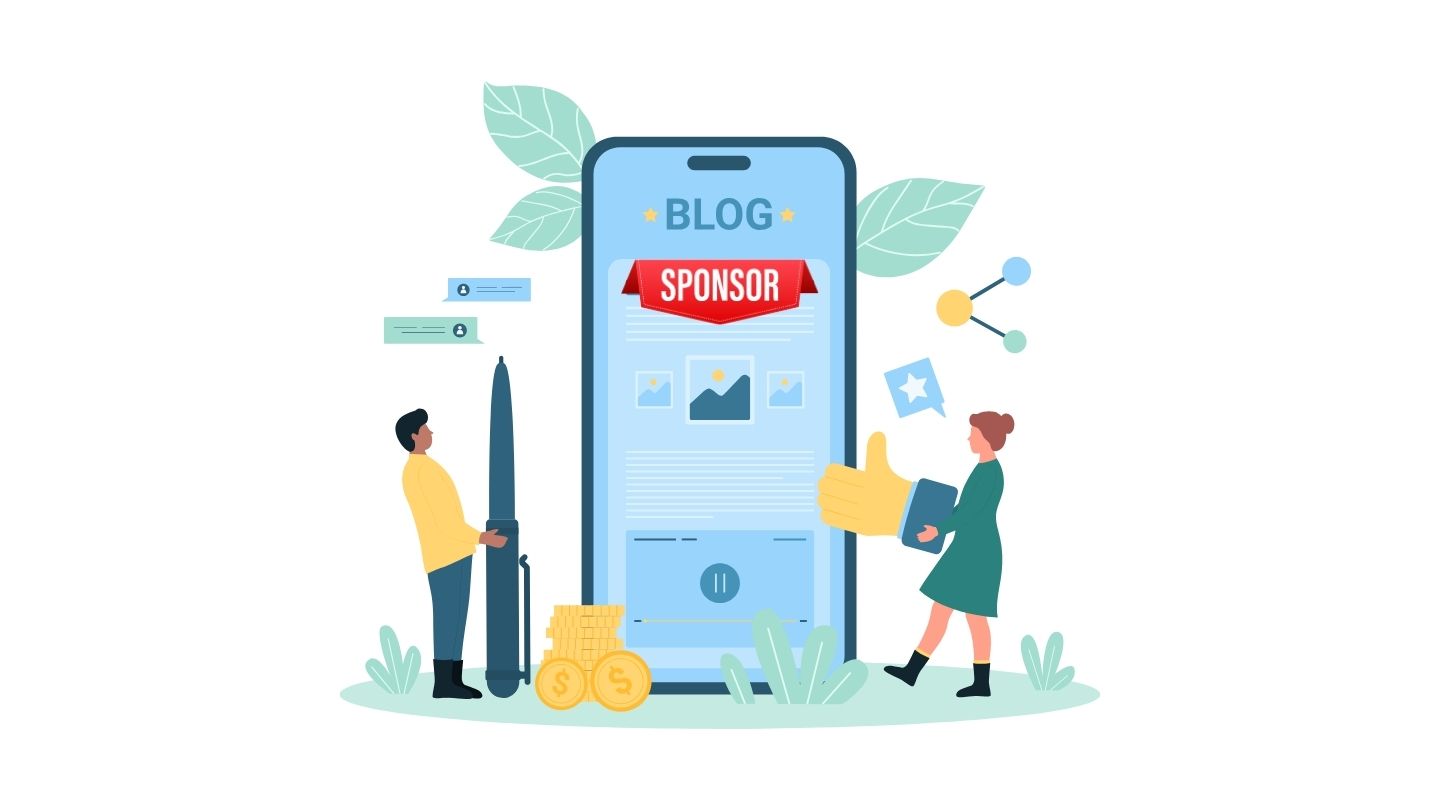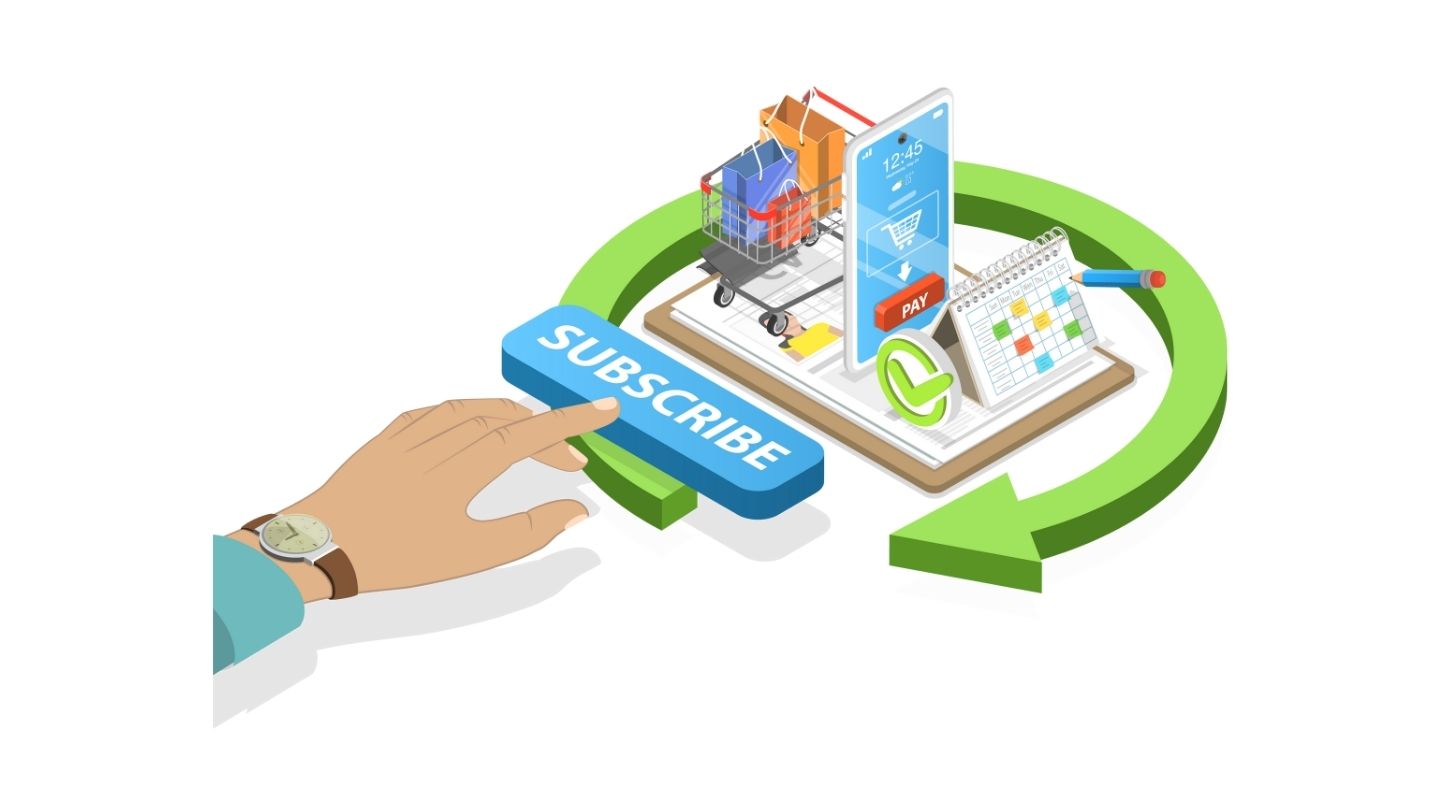Introduction
In the digital age, blogging has become more than just a hobby—it’s a lucrative career path for many. One of the most fascinating aspects of blogging as a profession is the multitude of ways bloggers can earn income. From displaying advertisements on their websites to selling digital products and offering consulting services, bloggers have a variety of monetization options at their disposal.
In this article, we’ll explore bloggers’ various methods to make money. Whether you’re a seasoned blogger looking to diversify your income streams or someone considering starting a blog, understanding these strategies can help you make informed decisions about monetizing your blog. Let’s dive in!

Advertising
Advertising is one of the primary ways bloggers earn money. Bloggers can generate income by displaying ads on their blogs based on the number of impressions or clicks the ads receive. Here’s how it works:
- Displaying Ads: Bloggers can sign up with ad networks like Google AdSense, Media.net, or Amazon Associates to display ads on their blogs. These networks provide code snippets that bloggers can easily integrate into their blog’s layout.
- Ad Placement: Strategic ad placement can maximize earnings. Placing ads in visible areas, such as the header, sidebar, or within the content, can lead to higher click-through rates and increased revenue.
- Traffic Impact: The amount of money bloggers earn from ads is directly proportional to their blog’s traffic. Blogs with higher traffic volumes typically earn more from ads due to increased ad impressions and clicks.
- Optimizing Ad Revenue: Bloggers can optimize ad revenue by experimenting with ad formats, placements, and types. They can also use analytics tools to track ad performance and make data-driven decisions to improve earnings.
- Considerations: While advertising can be a lucrative income stream, bloggers should consider their audience’s experience. Too many ads or intrusive ad formats can negatively impact user experience and lead to decreased engagement.
By effectively leveraging advertising, bloggers can monetize their blogs and generate a consistent income stream.

Affiliate Marketing
Affiliate marketing is a popular monetization strategy for bloggers. It involves promoting products or services from other companies and earning a commission for every sale or lead generated through their referral. Here’s a detailed look at how bloggers can make money through affiliate marketing:
- Promoting Products: Bloggers choose products or services that align with their niche and audience. They create content that promotes these products, such as reviews, tutorials, or recommendations.
- Affiliate Links: To track sales and leads, bloggers use unique affiliate links provided by the affiliate programs they join. These links are embedded in their content, such as within blog posts, banners, or social media posts.
- Earning Commissions: When a reader clicks on an affiliate link and makes a purchase or completes a desired action (like signing up for a service), the blogger earns a commission. Commissions can vary widely depending on the affiliate program and the product/service being promoted.
- Transparency and Disclosure: Bloggers need to disclose their affiliate relationships to their audience. Being transparent about affiliate links helps maintain trust with readers. Additionally, some countries require bloggers to disclose affiliate links by law.
- Choosing Products: Selecting the right products or services to promote is crucial. Bloggers should choose products that are relevant and valuable to their audience. Recommending products they genuinely believe in can lead to higher conversion rates and increased earnings.
- Monitoring Performance: Bloggers should regularly monitor the performance of their affiliate links and campaigns. Tracking metrics such as clicks, conversions, and earnings can help them optimize their strategies for better results.
- Compliance: Bloggers should comply with the terms and conditions of the affiliate programs they join. Violating these terms can result in the termination of their affiliate account and loss of potential earnings.
By effectively leveraging affiliate marketing, bloggers can diversify their income streams and increase their overall earnings. However, success in affiliate marketing requires careful planning, strategic promotion, and a genuine interest in the products or services being promoted.

Sponsored Content
Sponsored content is another way bloggers can earn money. It involves collaborating with brands to create content that promotes their products or services. Here’s a detailed look at how bloggers can make money through sponsored content:
- Brand Collaboration: Brands pay bloggers to create content that showcases their products or services in a positive light. This content can take various forms, including blog posts, videos, social media posts, or product reviews.
- Content Creation: Bloggers work closely with brands to create sponsored content that aligns with the brand’s messaging and goals. The content should be engaging, informative, and relevant to the blogger’s audience.
- Disclosure: Bloggers need to disclose sponsored content to their audience. This transparency helps maintain trust with readers and ensures compliance with advertising regulations in many countries.
- Negotiating Rates: Bloggers can negotiate rates with brands based on factors such as their audience size, engagement rates, and the scope of the sponsored content. Rates can vary widely depending on these factors and the brand’s budget.
- Audience Alignment: When considering sponsored content opportunities, bloggers should ensure that the brand aligns with their values and audience interests. Promoting irrelevant or low-quality products can harm their credibility and reputation.
- Maintaining Authenticity: While creating sponsored content, bloggers should strive to maintain authenticity and avoid being overly promotional. Genuine recommendations and honest reviews can resonate more with their audience.
- Long-Term Partnerships: Building long-term partnerships with brands can be beneficial for bloggers. These partnerships can lead to recurring sponsored opportunities and a more stable income stream.
- Compliance: Bloggers should comply with advertising regulations and guidelines when creating sponsored content. This includes disclosing sponsored content and adhering to rules set by advertising standards bodies in their region.
By effectively collaborating with brands and creating engaging sponsored content, bloggers can monetize their blogs and build mutually beneficial relationships with brands. However, maintaining transparency and authenticity is key to ensuring the success of sponsored content campaigns.

Selling Products or Services
Selling products or services is a direct way for bloggers to monetize their blogs. By leveraging their expertise and audience, bloggers can create and sell their own products or services. Here’s a detailed look at how bloggers can make money through selling products or services:
- Creating Products or Services: Bloggers can create a variety of products or services to sell, such as ebooks, online courses, consulting services, merchandise, or digital downloads. These products/services should be aligned with the blogger’s niche and audience interests.
- Leveraging Expertise and Audience: Bloggers leverage their expertise and authority in their niche to attract customers. Their audience trusts their recommendations and is more likely to purchase products or services that they create.
- Providing Value: Providing value to the audience is crucial for successful product/service sales. Bloggers should create products/services that address their audience’s needs, solve their problems, or provide them with valuable information or resources.
- Marketing and Promotion: Bloggers need to effectively market and promote their products/services to reach their target audience. They can use various strategies such as social media marketing, email marketing, collaborations, or running promotional campaigns.
- Customer Relationships: Building strong relationships with customers is important for long-term success. Bloggers should provide excellent customer service, engage with their audience, and gather feedback to improve their products/services.
- Earning Potential: Selling products or services can be a lucrative income stream for bloggers. The earnings potential depends on factors such as the quality of the product/service, pricing strategy, and marketing efforts.
- Diversification: Selling products or services allows bloggers to diversify their income streams. This can provide more stability and resilience against fluctuations in other income sources.
By creating and selling products or services that provide value to their audience, bloggers can monetize their blogs and build a sustainable income stream. However, success in selling products or services requires careful planning, understanding of the target audience, and a commitment to delivering high-quality offerings.
Freelancing

Freelancing is a common way for bloggers to monetize their skills and expertise. By offering services like writing, graphic design, consulting, and more, bloggers can attract clients and generate income. Here’s a detailed look at how bloggers can make money through freelancing:
- Offering Services: Bloggers can offer a variety of services based on their skills and expertise. Common freelance services include writing articles, creating graphics, designing websites, providing consulting services, and more.
- Using Blog as Portfolio: Bloggers use their blog as a portfolio to showcase their work and attract clients. They include samples of their work, testimonials from satisfied clients, and information about the services they offer.
- Building a Strong Personal Brand: Building a strong personal brand is essential for attracting freelance clients. Bloggers should establish themselves as experts in their field, create a professional online presence, and actively engage with their audience.
- Delivering High-Quality Work: Delivering high-quality work is crucial for freelancers to attract and retain clients. Bloggers should meet deadlines, communicate effectively with clients, and consistently deliver work that exceeds expectations.
- Marketing and Promotion: Bloggers need to actively market and promote their freelance services to attract clients. This can include networking, using social media, reaching out to potential clients, and showcasing their expertise through their blog and other online platforms.
- Setting Rates and Negotiating: Bloggers should set competitive rates for their services based on factors such as their skills, experience, and market demand. They should also be prepared to negotiate rates with clients to reach a mutually beneficial agreement.
- Managing Finances: Freelancers are responsible for managing their finances, including invoicing clients, tracking expenses, and paying taxes. Bloggers need to keep accurate records and stay organized to ensure they are paid fairly for their work.
- Building Relationships: Building long-term relationships with clients is important for freelancers. Bloggers should focus on providing excellent customer service, being responsive to client needs, and consistently delivering high-quality work to build trust and loyalty.
By offering freelance services, bloggers can monetize their skills and expertise while building valuable relationships with clients. However, freelancing requires dedication, professionalism, and a commitment to delivering high-quality work to succeed.

Membership or Subscription
Offering premium content or services through a membership or subscription model is a popular way for bloggers to monetize their blogs. By providing exclusive content or benefits to paying members, bloggers can generate recurring revenue. Here’s a detailed look at how bloggers can make money through a membership or subscription model:
- Membership Tiers: Bloggers can offer different membership tiers with varying levels of access and benefits. For example, they might offer a basic tier with access to exclusive content and a premium tier with additional benefits such as personal coaching or exclusive discounts.
- Exclusive Content: Providing exclusive content is key to attracting and retaining members. This content can include in-depth articles, videos, webinars, or downloadable resources that are not available to non-members.
- Community Engagement: Building a sense of community among members can enhance the membership experience. Bloggers can create forums, groups, or live chat sessions where members can interact with each other and the blogger.
- Consistent Value Delivery: Consistently delivering value is crucial for maintaining a successful membership model. Bloggers should regularly update their exclusive content, engage with members, and listen to feedback to ensure they are meeting their members’ needs.
- Marketing and Promotion: Bloggers need to effectively market their membership program to attract new members. This can include promoting the benefits of membership on their blog, social media, and other platforms, as well as offering special promotions or discounts to encourage sign-ups.
- Member Retention: Retaining members is as important as attracting new ones. Bloggers should focus on providing ongoing value, engaging with members, and offering incentives for members to renew their subscriptions.
- Technical Setup: Setting up a membership or subscription model requires technical know-how. Bloggers need to choose a platform that supports membership features, set up payment processing, and ensure that members have access to exclusive content or benefits.
- Feedback and Improvement: Gathering feedback from members is essential for improving the membership experience. Bloggers should regularly solicit feedback, listen to suggestions, and make improvements based on member input.
By offering a membership or subscription model, bloggers can create a recurring income stream while providing exclusive value to their most dedicated fans. However, success in this model requires a commitment to consistently delivering value and engaging with members to build a loyal and supportive community.

Selling Digital Products
Selling digital products is a great way for bloggers to monetize their blogs. These products can include a wide range of items such as printables, templates, stock photos, plugins, software, and more. Here’s a detailed look at how bloggers can make money by selling digital products:
- Product Creation: Bloggers can create digital products that cater to their audience’s needs and interests. This can include printable planners, graphic design templates, e-books, online courses, software tools, and more.
- Audience Research: Understanding audience preferences and market trends is crucial for creating successful digital products. Bloggers should research to identify what their audience is interested in and what kind of products they are likely to purchase.
- Product Quality: Creating high-quality digital products is essential for attracting and retaining customers. Bloggers should focus on providing value and solving their audience’s problems through their products.
- Marketing and Promotion: Bloggers need to effectively market their digital products to reach their target audience. This can include promoting the products on their blog, social media, email newsletters, and other channels.
- Sales Platforms: Bloggers can sell their digital products on their own website or through third-party platforms such as Etsy, Gumroad, or Shopify. Choosing the right platform depends on factors like the type of product, target audience, and marketing strategy.
- Customer Support: Providing excellent customer support is important for building trust and loyalty with customers. Bloggers should be responsive to customer inquiries and address any issues or concerns promptly.
- Feedback and Iteration: Gathering feedback from customers can help bloggers improve their digital products. By listening to customer suggestions and making iterative improvements, bloggers can create products that better meet their audience’s needs.
- Pricing Strategy: Setting the right price for digital products is crucial. Bloggers should consider factors such as production costs, perceived value, competitor pricing, and audience willingness to pay when determining the price of their products.
By creating and selling digital products, bloggers can diversify their income streams and provide additional value to their audience. However, success in selling digital products requires careful planning, market research, and a commitment to creating high-quality products that meet customer needs.

Consulting or Coaching
Offering consulting or coaching services is a lucrative way for bloggers to monetize their expertise and help others achieve their goals. Here’s a detailed look at “how Bloggers make money” through consulting or coaching:
- Expertise in a Niche: Bloggers who have established themselves as experts in a particular niche can offer consulting or coaching services. This could be in areas such as marketing, finance, health, or any other niche where they have valuable knowledge and experience.
- Services Offered: Consulting services typically involve providing advice, guidance, and strategies to help clients achieve their goals or solve specific problems. Coaching services, on the other hand, focus more on personal development and helping clients improve skills or overcome challenges.
- Establishing Credibility: Building credibility is crucial for attracting consulting or coaching clients. Bloggers can establish credibility by showcasing their expertise through their blog content, speaking engagements, published articles, and testimonials from satisfied clients.
- Attracting Clients: To attract consulting or coaching clients, bloggers need to clearly define their services, target audience, and value proposition. They can use their blog and other online platforms to promote their services and reach potential clients.
- Setting Rates: Bloggers can set their consulting or coaching rates based on factors such as their expertise, experience, market demand, and the complexity of the services provided. They can offer different pricing packages to cater to different client needs and budgets.
- Delivering Value: Providing value to clients is essential for building a successful consulting or coaching business. Bloggers should focus on understanding their client’s needs, providing personalized solutions, and delivering results that exceed expectations.
- Managing Client Relationships: Building strong relationships with clients is key to long-term success. Bloggers should communicate effectively, be responsive to client needs, and provide ongoing support to maintain positive relationships.
- Expanding Services: As bloggers grow their consulting or coaching business, they can consider expanding their services to reach a wider audience. This could include offering group coaching programs, online courses, or workshops.
By offering consulting or coaching services, bloggers can monetize their expertise, help others achieve their goals, and build a rewarding career helping others succeed. However, success in consulting or coaching requires dedication, continuous learning, and a commitment to delivering value to clients.

Events and Workshops
Organizing events, workshops, or webinars is an excellent way for bloggers to monetize their expertise and provide valuable learning experiences to their audience. Here’s a detailed look at how bloggers can make money through events and workshops:
- Event Organization: Bloggers can organize various types of events, including conferences, workshops, seminars, or webinars, either online or in person. These events can focus on topics related to their blog’s niche and audience interests.
- Charging for Participation: Bloggers can charge a fee for participation in their events. The fee can vary depending on the type of event, the content provided, and the value offered to participants.
- Leveraging Expertise: Bloggers leverage their expertise and knowledge to create valuable learning experiences for event participants. They provide insights, strategies, and practical tips that attendees can apply to their own lives or businesses.
- Building a Network: Organizing events allows bloggers to build a network of like-minded individuals and industry professionals. This network can lead to future collaborations, partnerships, and opportunities for growth.
- Promotion and Marketing: Effective promotion and marketing are crucial for attracting participants to events. Bloggers can use their blogs, social media, email newsletters, and other channels to promote their events and reach a wider audience.
- Content Delivery: Delivering high-quality content is key to the success of events. Bloggers should ensure that their presentations, workshops, or webinars are well-prepared, engaging, and provide value to participants.
- Feedback and Improvement: Gathering feedback from participants is essential for improving future events. Bloggers should listen to participant suggestions and make adjustments to their events based on this feedback to ensure continued success.
- Monetization Strategies: In addition to charging for participation, bloggers can monetize events through sponsorships, partnerships, and selling products or services related to the event topic.
By organizing events and workshops, bloggers can monetize their expertise, provide value to their audience, and build a strong community around their blog. However, successful event organization requires careful planning, effective marketing, and a commitment to delivering high-quality content and experiences.

Brand Partnerships
Collaborating with brands for sponsored posts, social media campaigns, and other promotional activities is a common way for bloggers to monetize their blogs. Here’s a detailed look at how bloggers can make money through brand partnerships:
- Sponsored Content: Brands pay bloggers to create content that promotes their products or services. This can include blog posts, social media posts, videos, reviews, and more. The content is usually created in collaboration with the brand and is intended to reach the blogger’s audience.
- Social Media Campaigns: Bloggers can partner with brands for social media campaigns, where they promote the brand’s products or services on their social media channels. This can include sponsored posts, stories, or giveaways.
- Product Reviews: Brands may send products to bloggers for review. The blogger then creates content, such as a blog post or video, reviewing the product and sharing their honest opinion with their audience. Brands may pay for the review or provide the product for free.
- Affiliate Partnerships: Some brand partnerships may involve affiliate marketing, where bloggers earn a commission for every sale or lead generated through their affiliate link. This allows bloggers to earn money from recommending products or services they believe in.
- Brand Alignment: Bloggers need to align with brands that resonate with their audience and values. Working with brands that are relevant to their niche and audience can lead to more authentic and successful partnerships.
- Authenticity and Transparency: Maintaining authenticity and transparency in brand partnerships is crucial for retaining audience trust. Bloggers should disclose sponsored content and be honest about their relationship with the brand.
- Negotiating Rates: Bloggers can negotiate rates with brands based on factors such as their audience size, engagement rates, and the scope of the partnership. Rates can vary widely depending on these factors and the brand’s budget.
- Long-Term Partnerships: Building long-term partnerships with brands can be beneficial for bloggers. These partnerships can lead to recurring sponsored opportunities and a more stable income stream.
By collaborating with brands for sponsored content, social media campaigns, and other promotional activities, bloggers can monetize their blogs and create valuable partnerships. However, maintaining authenticity and transparency is key to building trust with their audience and ensuring the success of brand partnerships.
Conclusion
Bloggers have a plethora of methods to monetize their blogs and generate income. The key to success lies in providing valuable content, understanding the audience, and selecting monetization methods that align with the blog’s niche and audience. Here’s a summary of the key points covered in this article:
- Advertising: Bloggers can earn money by displaying ads on their blogs through ad networks like Google AdSense. The more traffic a blog has, the more money the blogger can earn from ads.
- Affiliate Marketing: Bloggers promote products or services and earn a commission for every sale or lead generated through their referral. Choosing relevant products/services and being transparent about affiliate links is crucial.
- Sponsored Content: Brands pay bloggers to create content that promotes their products or services. Bloggers need to disclose sponsored content to maintain trust with their audience.
- Selling Products or Services: Bloggers can sell their own products or services, such as ebooks, courses, or merchandise. Understanding audience preferences and market trends is important for creating successful digital products.
- Membership or Subscription: Bloggers can offer premium content or services through a membership or subscription model. Building a loyal audience and consistently delivering value is crucial for a successful membership model.
- Freelancing: Some bloggers offer freelance services like writing, graphic design, or consulting. Establishing credibility and showcasing success stories can help attract clients for freelance services.
- Events and Workshops: Organizing events, workshops, or webinars and charging for participation is another way bloggers can make money. Promoting events effectively and delivering high-quality content is crucial for successful events.
- Brand Partnerships: Collaborating with brands for sponsored posts, social media campaigns, and other promotional activities can be lucrative for bloggers. Maintaining authenticity and transparency in brand partnerships is key to retaining audience trust.
In conclusion, understanding How Bloggers Make Money is key to monetizing blogs through various methods. Success in this endeavor relies on providing value to the audience and selecting monetization strategies that fit the blog’s niche and audience. By consistently delivering high-quality content and staying attuned to their audience’s needs, bloggers can establish sustainable income streams and forge successful blogging careers.
Related Post:
Power Blogging to Make Money: Elevate Your Earnings in 2024
Can I Make Money Blogging About My Life: Important Guide in 2024
The Doubt: Can You Really Make Money from Blogging in 2024
How To Start a Successful Blog And Make Money in 2024




